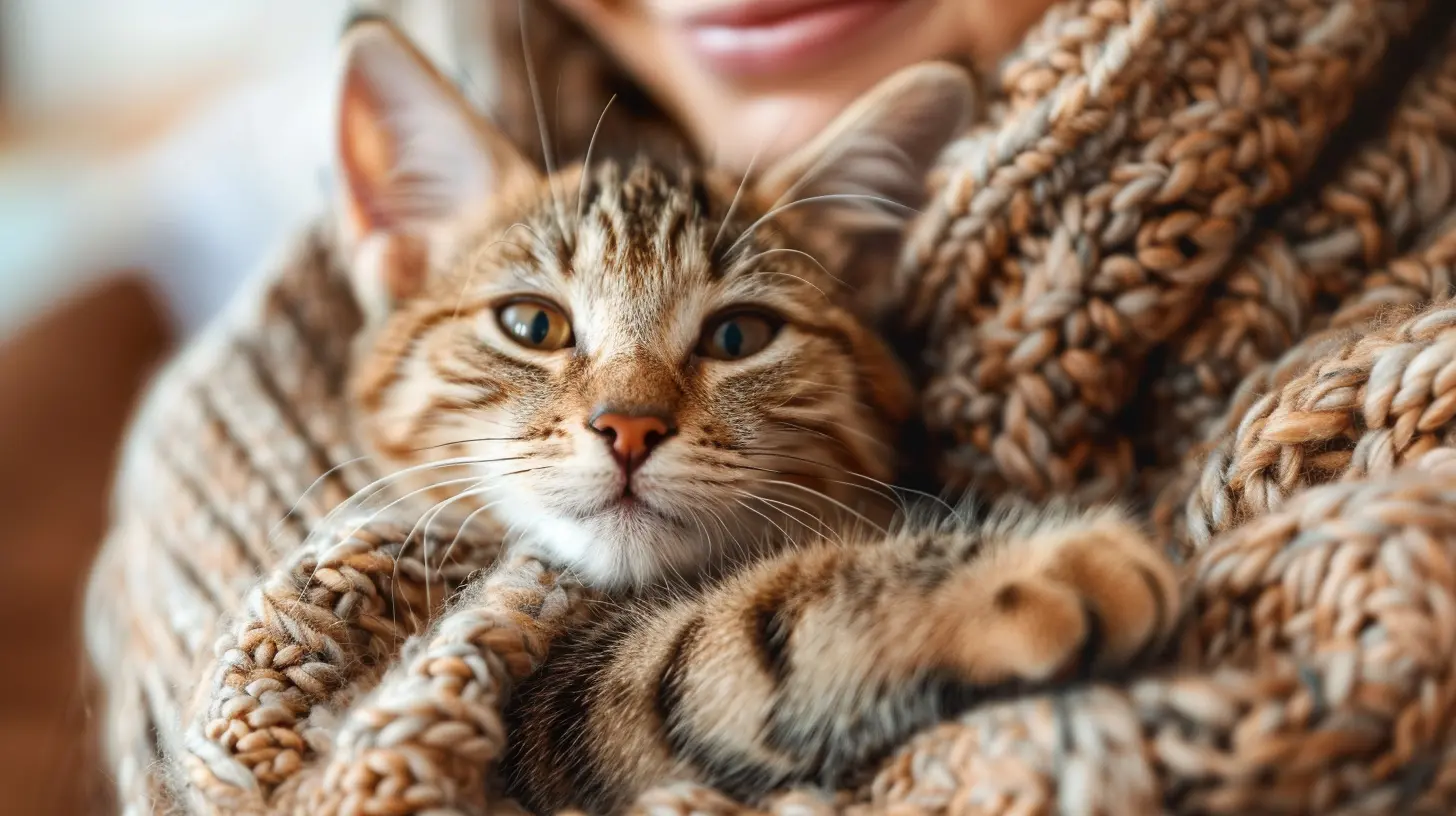Can Pets Improve Your Heart Health? The Science is in!
24 September 2025
Have you ever felt your heart skip a beat when your furry friend curls up beside you? Or noticed how the world seems a little lighter when a wagging tail greets you at the door? If so, you're not alone. Pets don’t just bring love and companionship; they might actually be the unsung heroes of heart health.
Science is finally catching up with what pet lovers have known all along—our four-legged companions are more than just cute faces; they may be our heart’s greatest allies. But how exactly do they work their magic? Let’s take a deep dive into the fascinating link between pets and cardiovascular health. 
🏥 The Science Behind Pets & Heart Health
Medical research on the connection between pets and heart health has been booming in recent years. Studies suggest that pet ownership is linked to lower blood pressure, reduced cholesterol levels, and even a decreased risk of heart disease.The American Heart Association (AHA) has acknowledged that pets, especially dogs, may help reduce the risk of cardiovascular disease. But why? What makes these furry creatures such heart-friendly companions?
Let’s unravel the science behind this heartwarming mystery. 
❤️ Lowering Blood Pressure, One Paw at a Time
High blood pressure is a silent killer, sneaking up like a thief in the night. But guess what? A pet might just be your best defense!Research indicates that pet owners generally have lower blood pressure than non-pet owners. The simple act of petting a dog or cat can trigger the release of oxytocin—the ‘love hormone’—which helps lower stress and, in turn, reduces blood pressure.
Imagine this: After a long, stressful day, you come home, sink into the couch, and your pet hops up beside you. As you stroke their fur, you can almost feel the stress melt away. That’s oxytocin at work, helping your heart stay calm and steady. 
🏃♂️ Encouraging an Active Lifestyle
Heart health thrives on movement. And who better to get you moving than a hyperactive pup with energy to spare?Dog owners are far more likely to engage in regular physical activity, whether it’s brisk walks, runs in the park, or playful chases around the house. In fact, studies have shown that dog owners walk an average of 22 minutes more per day compared to those without pets.
More movement means stronger hearts, better circulation, and a lower risk of obesity. So, in a way, your dog is your furry fitness trainer—minus the gym fees! 
😊 Stress Reduction & Heart Rate Harmony
Chronic stress wreaks havoc on the heart. It can increase blood pressure, promote inflammation, and even trigger heart attacks. But here’s where pets shine once again.The presence of a pet has been found to lower levels of cortisol, the body’s primary stress hormone. At the same time, it enhances feelings of relaxation and emotional well-being.
Ever noticed how just being around your pet makes you feel at peace? That’s not just a coincidence; it’s hardwired into our biology. Their companionship helps regulate heart rate variability, a crucial factor in cardiovascular health.
👫 A Cure for Loneliness & Social Connection
Loneliness and heart health? Absolutely connected.Social isolation can be just as damaging to the heart as smoking or obesity. But pets fill that void with unconditional love and companionship. Whether it’s the morning cuddle sessions or evening walks in the park, they provide a sense of purpose and connection.
Beyond that, pets act as social magnets—sparking conversations with fellow pet lovers. You may find yourself exchanging smiles and stories with strangers at the dog park, forming connections that indirectly benefit your mental and heart health.
🩹 Faster Recovery & Longevity
Believe it or not, owning a pet may even increase your lifespan.Studies have found that heart attack survivors who own pets tend to live longer than those who don’t. Pets provide emotional stability, encourage physical activity, and reduce stress—all of which contribute to faster recovery and longevity.
Doctors have even begun incorporating pet therapy in hospitals, where patients with heart conditions interact with therapy animals. The results? Lower stress levels, improved mood, and even reduced recovery time.
🐾 Are All Pets Equal When It Comes to Heart Health?
While dogs seem to have the most significant impact due to their ability to encourage an active lifestyle, cats and other small pets certainly play their part too!- Cats: Their purring has been linked to stress reduction and even healing properties that may promote heart health.
- Rabbits & Guinea Pigs: Gentle, comforting, and perfect for emotional regulation.
- Fish Tanks: Observing fish swim has been shown to reduce anxiety and lower blood pressure.
No matter the species, having a pet around can provide emotional and physiological benefits that help protect your heart.
🚀 Should You Get a Pet for Heart Health?
While pets offer amazing heart-healthy benefits, it’s important to remember that they’re a lifelong commitment. If you already have a pet, congratulations—your heart is in good paws!However, if you’re thinking about adopting, consider factors like time, responsibility, and allergies. The key is to find a pet that fits your lifestyle so both of you can thrive.
And if owning a pet isn’t an option, don’t worry! You can still reap some of the benefits by spending time with animals at shelters, volunteering, or even pet-sitting for friends and family.
❤️ Final Thoughts
So, can pets improve your heart health? Science gives a resounding yes!From lowering blood pressure to reducing stress and boosting physical activity, pets are silent warriors in the fight against heart disease. They offer companionship, joy, and unconditional love—all of which contribute to a happier, healthier heart.
So, the next time you cuddle your furry friend, know that it’s not just cute—it’s cardioprotective. Who knew that love on four legs could be the best medicine for your heart?
all images in this post were generated using AI tools
Category:
Heart HealthAuthor:

Eileen Wood
Discussion
rate this article
1 comments
Ella McMaster
This article insightfully highlights the connection between pets and heart health. It's refreshing to see scientific backing for the emotional and physical benefits pets bring to our lives. Well done!
October 15, 2025 at 3:00 PM

Eileen Wood
Thank you for your kind words! I'm glad you found the connection between pets and heart health insightful.


